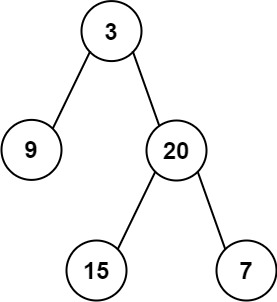Sum of Left Leaves
Given the root of a binary tree, return the sum of all left leaves.
A leaf is a node with no children. A left leaf is a leaf that is the left child of another node.
Example 1:

Input: root = [3,9,20,null,null,15,7]
Output: 24
Explanation: There are two left leaves in the binary tree, with values 9 and 15 respectively.
Example 2:
Input: root = [1]
Output: 0
Constraints:
The number of nodes in the tree is in the range [1, 1000].
-1000 <= Node.val <= 1000
/**
* Definition for a binary tree node.
* public class TreeNode {
* int val;
* TreeNode left;
* TreeNode right;
* TreeNode() {}
* TreeNode(int val) { this.val = val; }
* TreeNode(int val, TreeNode left, TreeNode right) {
* this.val = val;
* this.left = left;
* this.right = right;
* }
* }
*/
class Solution {
public int sumOfLeftLeaves(TreeNode root) {
if (root == null) return 0;
int sum = 0;
// Step 1: Check if left child exists and is a leaf
if (root.left != null && isLeaf(root.left)) {
sum += root.left.val;
}
// Step 2: Recurse on left and right subtrees
sum += sumOfLeftLeaves(root.left);
sum += sumOfLeftLeaves(root.right);
return sum;
}
// Helper function to check if node is a leaf
private boolean isLeaf(TreeNode node) {
return node.left == null && node.right == null;
}
}
Comments
Post a Comment